When you have the burden of debt hanging over your life, you don’t feel free. Living paycheck-to-paycheck, coasting by on minimum payments, and playing hot potato with your credit cards is not the way anyone wants to live.
Watch The Video
It can feel like you’re stuck in a dead end rut, working hard at a job for nothing. As the numbers from your paycheck flit away on yet another payment and vaporize like mist, you may feel you totally lack control over how you want to live your life.
“The borrower is slave to the lender“…you may understand that proverb bit too viscerally. But you don’t need to be stuck there. There is a way out. It’ll take grit, but you can do it.

This article is particularly aimed at younger people mired in debt from their lifestyle choices and college loans, and especially single people or those without children. For those that are in debt due to tragedy, medical issues, or other out-of-your-control events, this article is also for you, but know that we understand it can be really challenging to get a whole family on board with a huge lifestyle change, and that personal tragedy comes loaded with spiritual and emotional terrains to navigate and heal.
Hopefully, I can provide all of you (no matter where the debt started) with some inspiration as you figure out how to take steps toward a better life. Surprisingly, a lot of that inspiration comes from an unlikely source … homesteading!
Read on to learn more about how to pay off debt the homestead way.
Key Realizations
Now, you certainly don’t have to be an old-timey homesteader to get out of debt, but it can help you to think like an old-timey homesteader to get out of debt. I’ve often said that homesteading is like a crash course in reality, and that a practical, get-it-done-type attitude is also absolutely crucial to learning how to pay off debt.
If you’ll allow me to extend this metaphor through the whole article, I think you’ll see my point. To illustrate, let me give you four key mindsets that I believe are necessary to both homesteading and breaking free from debt, and then support the ideas offered later in this article.
1. Debt Doesn’t Have to Be Normal
If you’re an American, you’ve likely spent your entire life living in a country buried in debt, and the toxic financial culture reflects it. Every major purchase comes with financing options.
You were probably told that college was the only way to progress after high school whether you could afford it or not. You are offered credit card opportunities at every turn. It’s easy to think that buying things with money you don’t have is just the way things are.

But if you don’t want to live this way, you don’t have to. Debt isn’t natural, or normal, and you can break free from the lifestyle even if it is encouraged in every email promo, store banner, and commercial. Homesteaders didn’t live the life initially handed to them. They set out to make their own. Emulate that free-thinking with your finances, and stop believing that debt is the only option.
2. You Can Leave and Stake Your Claim
With the dissatisfaction of life in the city, homesteaders of the past wanted a new life in the forest, the prairie, the mountains. They left what was familiar and set out for new territory at the expense of their old ways of life, old habits, and old friends.
When you decide to leave the debt lifestyle for good, you’re setting out toward new territory in much the same way. If your past lifestyle created the debt, it’s time to leave it behind and start fresh. Because you can! Don’t despair. You’ve only got to muster some hope for yourself — that same hope that drove wagons west. Read “O Pioneers”, and take a deep breath.
3. Embrace Discomfort
Once you start this process, you’ll find that giving up the things that are familiar is an uncomfortable process. Homesteaders of the past and present have had to deal with discomfort at many points in their day.
The woodstove needs to be lit on a subzero morning. The animals need to be tended, even though it’s a downpour. The fertilizer needs spreading, even though the sun is blazing hot. Things need to be done, whether you like it or not. Laziness and lack of motivation just don’t fly.
But if you are headed towards a goal with motivation and purpose, the discomfort may start as an annoyance, then become a companion, and eventually, be so normal you forget to notice it. The same can come from the lifestyle change of giving up the things that put you in debt in the first place. Embrace the discomfort. It means you’re making an effort to change.
But if you want to stop the slow hemorrhage of money, it’s time to embrace discomfort. You’ll have to get used to saying no. You’ll have to deal with awkward situations. But you can stop caring what people think about your choices if you know you’re doing right.
You can also stop getting carried along with every trend that social media is screaming at you to buy. It’s okay to be outdated. Or be the weirdo who did it an alternative way. You can learn new things and create new habits. As you shirk the comfort that you formerly depended on, all the tiny little money leaks that have also been sapping your strength will disappear. We’ll get into some specifics later in this article.
4. Don’t Cower
Debt can feel like a bully mocking you behind your back, lurking around every dollar, prowling around the perimeter of your financial decisions. If you feel like the victim of debt, whether the debt is the result of poor financial decisions or sudden financial tragedy beyond your control, it’s time for a role reversal. Stop being a victim and fight for dominance.
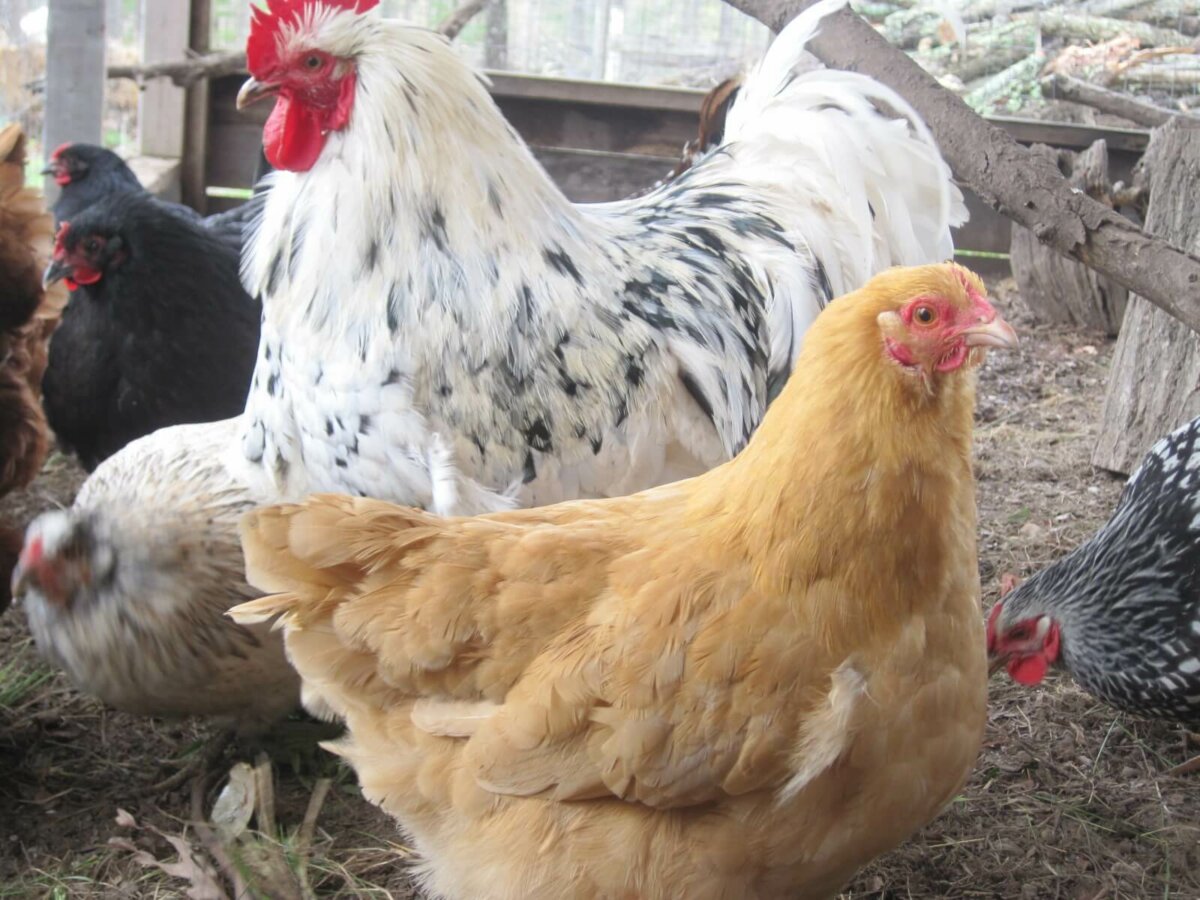
When herd animals are deciding who is the leader, there’s a fight. The strongest animal establishes itself as the leader, the head of the group, the one who makes the decisions and directs everyone else. If you’ve never watched this process, it sometimes looks brutal. The up-and-coming leader takes every opportunity to put the others in line, pecking, butting, and shoving others aside to put itself in control.
To manage your herds, however, a homesteader needs to establish that they are more dominant than that head, bully animal. Whether it’s a rooster, ram, dog, or bull, the herder needs to always be aware of the animal’s position, remain calm and confident, and never allow the animal to push them around. A human who acts afraid of the herd leader will always struggle for control of their animals.
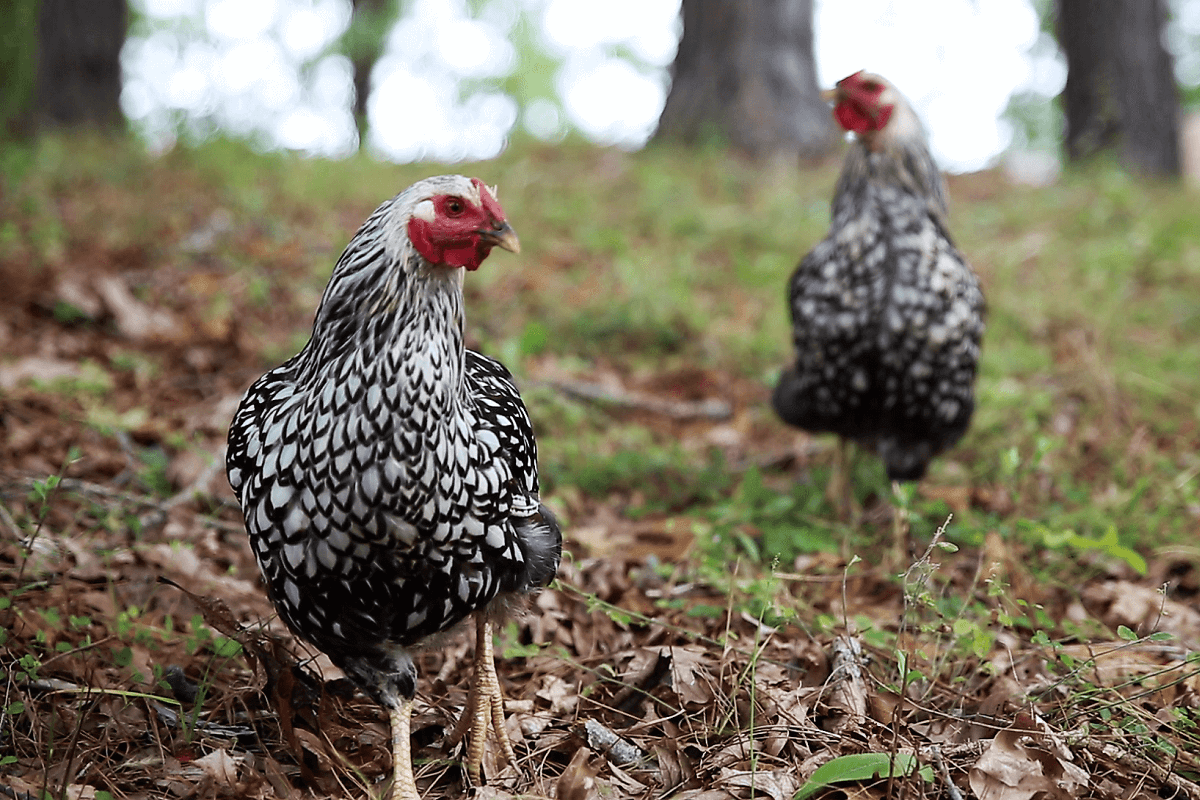
You need to approach your debt the same way. Fight for control, and win. If you can stop placing yourself at the mercy of this financial beast and start telling it who’s boss with good, strong, game-changing decisions, you’re on your way to being in control of it, rather than having it control you.
This mental fortitude will make you strong enough for some of the decisions coming up on this list and will also help you see them as strides toward independence, not a wallowing pity-party. If ever you start feeling sorry for yourself, you’re cowering. You need to stop that attitude immediately before it allows the debt-fear to become “herd leader” of your life again.
How to Pay Off Debt: Some Ways to Make It Work
If you look at online lists about how to get out of debt, you’ll hear excellent suggestions and methods: snowball (or avalanche!) your debt payments, make and keep a budget, and reduce debt by getting smarter with how you handle your finances and interest rates. If you’re serious about this, you should also check out the links in this paragraph. They are loaded with options and advice from experienced advisers.
But I’m an off-grid homesteader, not a financial consultant, so this list is instead comprised of practical, immediately applicable ideas that come from my backwoods side of the spectrum.
Living an alternative lifestyle gives one ample opportunity to try out options and ideas that may not fit into the mainstream idea of life. But they work, and I’ve seen them work personally. They won’t make you fit snugly into the roles expected of you by society, but they can streamline you as you charge toward debt freedom. That’s worth it in my book.

So that said, here’s a nonexhaustive, yet rich list of how to put all these ideas into play. Some are huge, others are tiny changes that can accumulate in impact when combined with others. Some of these may seem extreme when contrasted with my advice from an earlier article on living frugally but that’s on purpose.
These are line-in-the sand fights where you are going to face off with debt and decide who wins. Be tough, be brave, and be resolute. Getting free of debt sometimes means making short-term, drastic decisions to get control of your finances and get the beast slain. Once you are out of this dungeon, however, you’ll be wiser, freer, and able to start thoughtfully adding more colors back into your life again.
Related Post: Getting Started With Self-Sufficient Living (And Why It IS Possible)
1. My Most Important Tip: Exchange Your Smart Phone for a Dumb Phone
This might be one of the most important, most crucial, and yet most difficult items for a modern, well-connected person to understand. But going old-school with your phone is an incredible tool in defeating debt.
A smartphone is a portal to constant streams of information, advertisements, entertainment, and opportunities for comparison with others. It is a huge drain on your available time and mental energy (while it is also sucking away funds, of course). The phone itself can cost hundreds of dollars and needs monthly payments to function. Smartphones are also directly linked to your bank account, making instant, in-app purchases and tapping-to-pay all too easy.
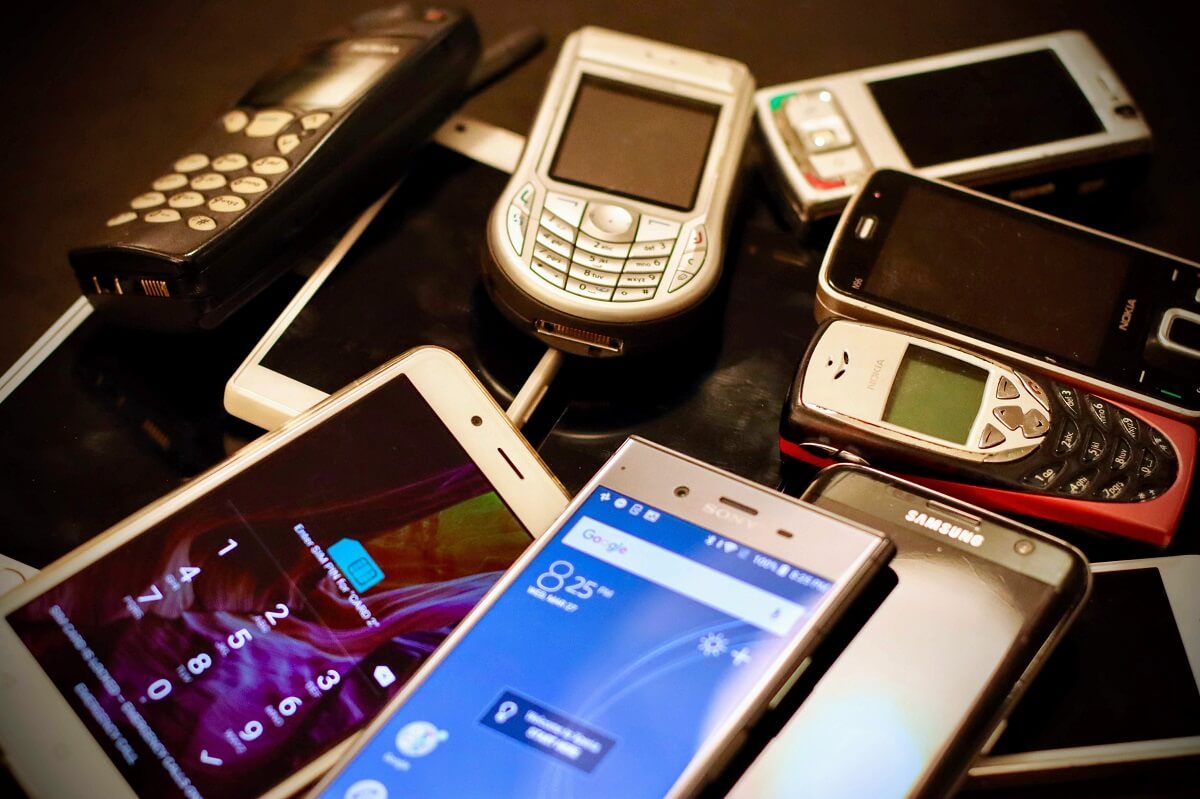
Try this radical, potentially game-changing challenge: sell your smart phone, and replace it with a phone that can merely text and call (yep, they’re still out there). Amazingly cheap pay-as-you-go plans are available for these phones if you forgo all the bells and whistles which gives you hundreds (if not thousands) of dollars back every year. You can also try getting a much cheaper, internet home-phone to ease your mobile use. You may need to totally change your phone habits, but you can do it.
You’ll have to relearn how to plan a route or function without all those apps, and some of your flakier friends won’t interact with you like they used to. But it’s kind of part of the journey. Homesteaders of the past knew that contact with their old life would be spotty once they went to the frontier. They would have to set their own schedules and use literal legwork to connect with other humans. That didn’t stop them.
2. Get Rid of Your Subscription Services
During this debt-killing spree, cut all expenses that keep you from your goal. Cancel premium memberships, cut off streaming services, stop your gym or club memberships, get rid of nonessential monthly item deliveries — can it all! You may be shocked once you see how many income leaks you’ll stop up during this purge.
3. Stop Paying for Entertainment
Use the funds that went toward sports games, movie theaters, concerts, races, festivals, or any other entertainment event, and knock out more of that debt. Remember, they’re not gone forever. You’re choosing to put them on hold so they don’t keep you from achieving your goal.
4. Stop Buying New Clothes
Fashion is a relentless, comparison is cruel (and somehow Mom jeans are inexplicably vogue). Just stop playing the game and make do with the clothes you have right now. I bet you have enough. Try going at least a year without buying new clothes.

In the real spirit of homesteading, if any clothes torn while you’re mending fences or working on the garden, patch them instead of tossing them. Your chickens don’t care what they look like.
If you do need something, try to get it from the thrift store. They’re loaded with barely-used, perfectly wonderful clothing. And if it damages your pride to darken their door, perhaps your pride needed the blow.
5. Stop Going Out to Eat and Learn How to Cook
Somewhere, the lie was started that eating healthy is more expensive than eating cheap, fast food — and people believed it. Perhaps this is true for processed foods, but it is absolutely not true for whole foods if you know how to cook them.
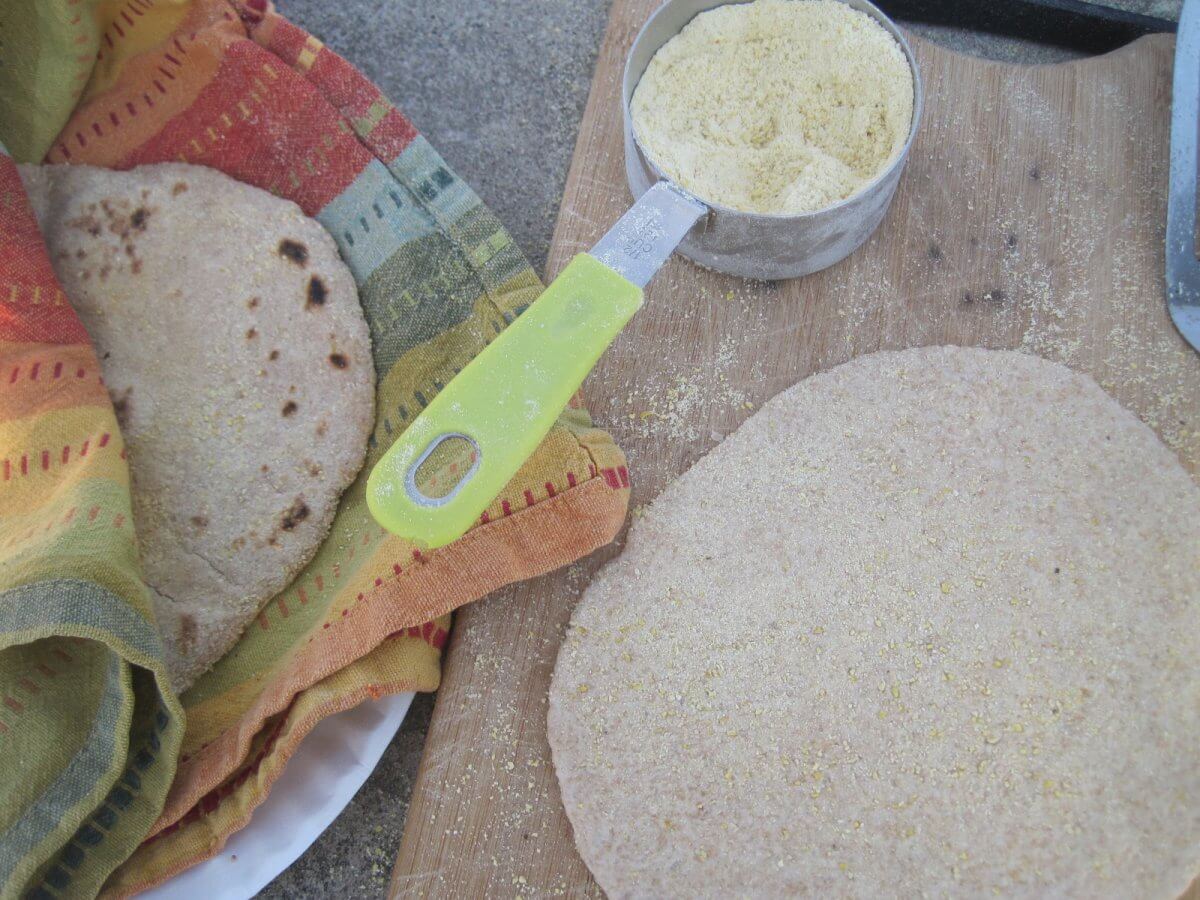
If you can read this article, you have access to the internet. And if you have access to the internet, you have access to literally millions of recipes, tutorials, and videos on how to cook.
Learning how to successfully cook peasant staples like brown rice, dried beans, cabbages, and potatoes is a great place to begin. Don’t worry if your attempts are less-than-impressive. The more you cook, the better you’ll get.
6. Kill Your Consumable Addictions
The obvious addictions are huge financial drains: drugs, alcohol, tobacco. The not-so-obvious ones are just as significant a drain: soda, fancy café beverages, energy drinks, shakes, smoothies, and extra-meal snacks. During this debt-slaying quest, identify what you are buying due to cravings, and fight to find freedom from them as well.
A practical way to put this idea into play is to go on a 30-day (or longer) fast from any beverage other than water or homegrown/foraged tea. Actually keep to it, and I think you’ll be shocked to see how much you save from that tiny change alone.

And perhaps once you surface from this adventure, you can reintroduce some of the things you enjoyed more responsibly, turning them back into the occasional treat they should be, rather than your daily water substitute.
7. Hardcore Downsize and Sell Things You Don’t Need
This objective is totally dependent on you, your current belongings, and their current value compared to your goal of getting out of debt and the free life waiting for you beyond it.
Start with reselling some designer clothes or sports equipment, and move through your possessions until you can make harder choices like deciding to sell the riding horse that you don’t ride all that much, taking a temporary break from college to stop increasing your debt, or moving from the house you bought that’s bigger than you need.
8. Go to Salvage Grocery Stores
Did you know that many “best by” dates on packaged food are not indicators of how safe the food is to eat? Where does all the unsold grocery store food go when a new item doesn’t sell well? Where does perfectly good food go when the boxes get banged up in shipping? The salvage grocery store, of course.
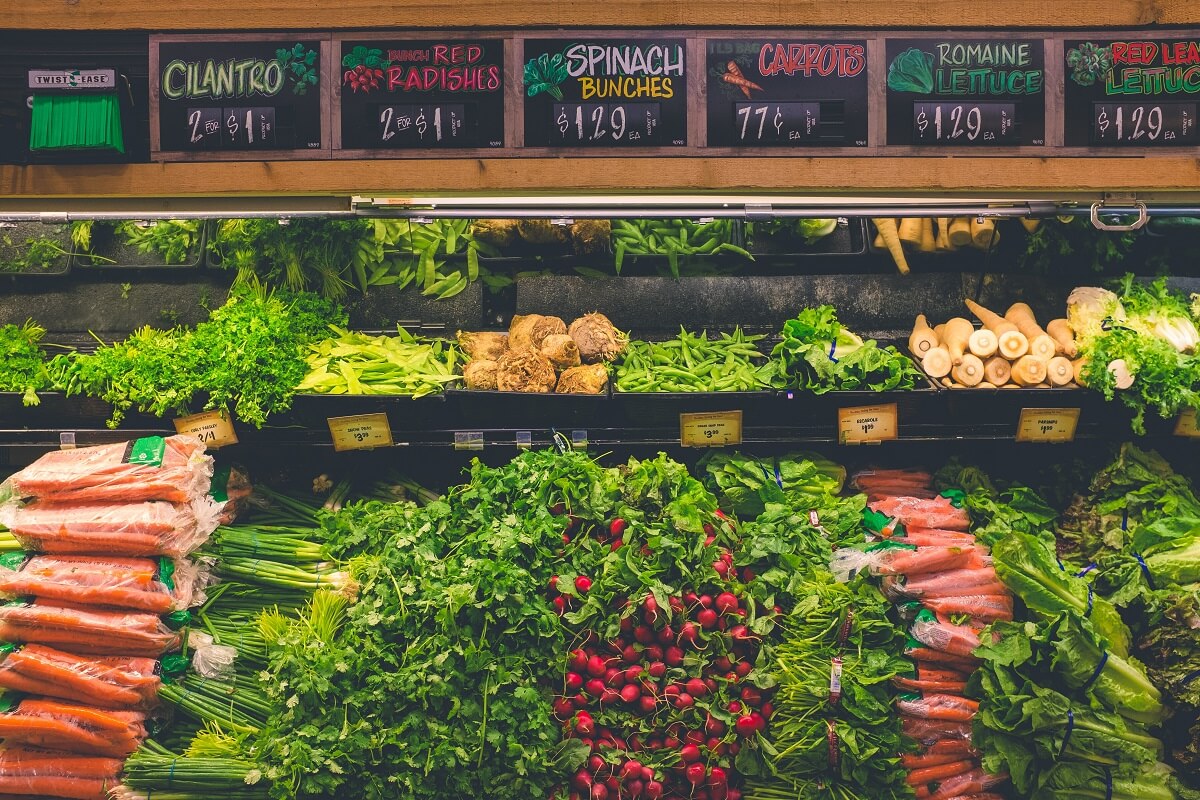
If you’re willing to not see it as “lowering yourself” to shop there, and you can look past a torn label or two, you can find amazing healthy (and often, organic) food at ridiculous prices.
9. Buy Bulk Goods
Once your home-cooking game is strong and you know what materials you use often, save money by buying in bulk. Our homestead buys 50-pound bags of organic wheat to grind for our daily bread, as well as our other staples such as beans, oats, whole spices, (and importantly, chocolate). We’ve used the Azure Standard program for years, and can confirm that it’s a great resource for whole, organic food — particularly for people living far from the diversity of foods offered in city grocery stores.
10. Put up a Clothesline
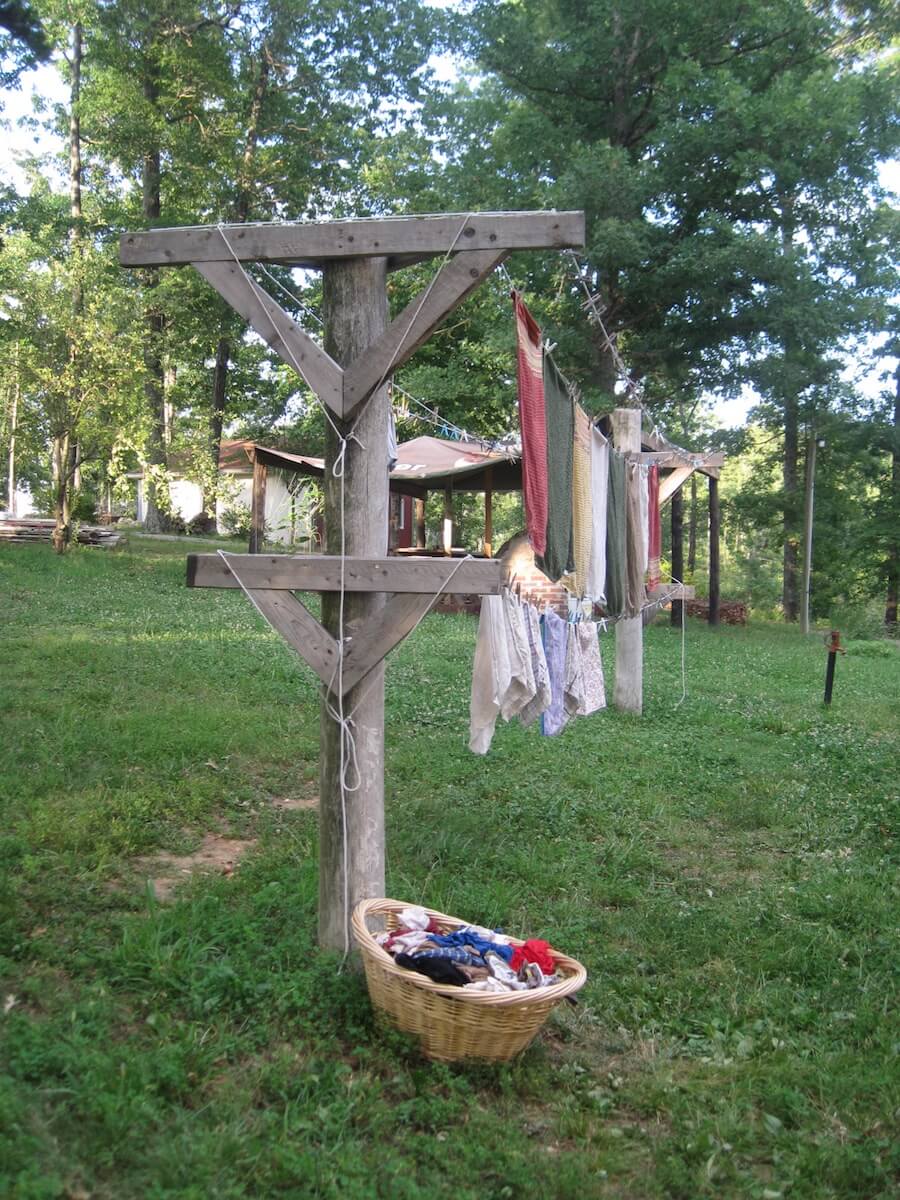
Have you ever calculated how much energy your clothes dryer uses? It isn’t pretty. A clothesline is simple to string up, and it doesn’t add a penny to your electricity bill.
11. Read Propaganda by Edward Bernays
This is no “conspiracy theory” book. Published in 1928, Bernays used this book as a means to explain his public relations methods to his clients — clients such as the President of the United States, Procter &Gamble, CBS, the American Tobacco Company, and General Electric.
If you want to lift the veil, you may see what big corporations, food companies, and governments have done to “engineer your consent” (their words, not mine). Be prepared to start understanding how you have been actively manipulated to believe you need to buy the things They want you to buy and think the way They want you to think. And maybe you won’t fall for their tricks any more.
12. Start Your Own Seeds and Grow a Garden
Planting from seed rather than starts gets you hundreds more plants on the dollar, and teaches you a lot about gardening along the way. There are few feelings more satisfying (and delicious) than eating produce from your own land.

Grow a big enough plot, and use good-ol’ manual labor and natural methods that don’t depend on garden store purchases (we have tons of suggestions in Insteading’s Gardening section), and you can reduce a significant amount from your former food budget.
12. Learn a Craft
If you’ve decided to stop paying for entertainment, or if you’ve gotten rid of your smart phone, you’ll probably find that you suddenly have more time than you did before. What a great time to add to your skillset and relax without numbing your mind in front of a screen.
If you’ve wanted to learn to crochet or knit, make soap, carve wood, or any other if-I-only-had-the-time desires, grab a knowledgeable friend or an online tutorial and get started. If you get good, you may be able to turn your new interest into a source of income, too.
14. Start a Side-Hustle
Every little bit helps, and if you can figure out how to generate some income on the side, you’ve added another element to your debt-slaying arsenal. Whether you offer handyman services, are amazing at crocheting amigurumi, rent out your goats as a brush-clearing service, or write articles for websites, you can find a niche for your product if you make a few calls and get motivated.
15. Show Your Affection With Something Other Than a Gift
If you have a habit of always sending or bringing a gift to the people you care about, this might be a surprisingly hard pill to swallow. But it can be easy to overspend when you justify it as affection.
Instead, write a loving letter, make a homemade gift, share a home-cooked meal, or give your time, rather than a forgettable item. And don’t let the holidays set you back from your debt-freedom goals.
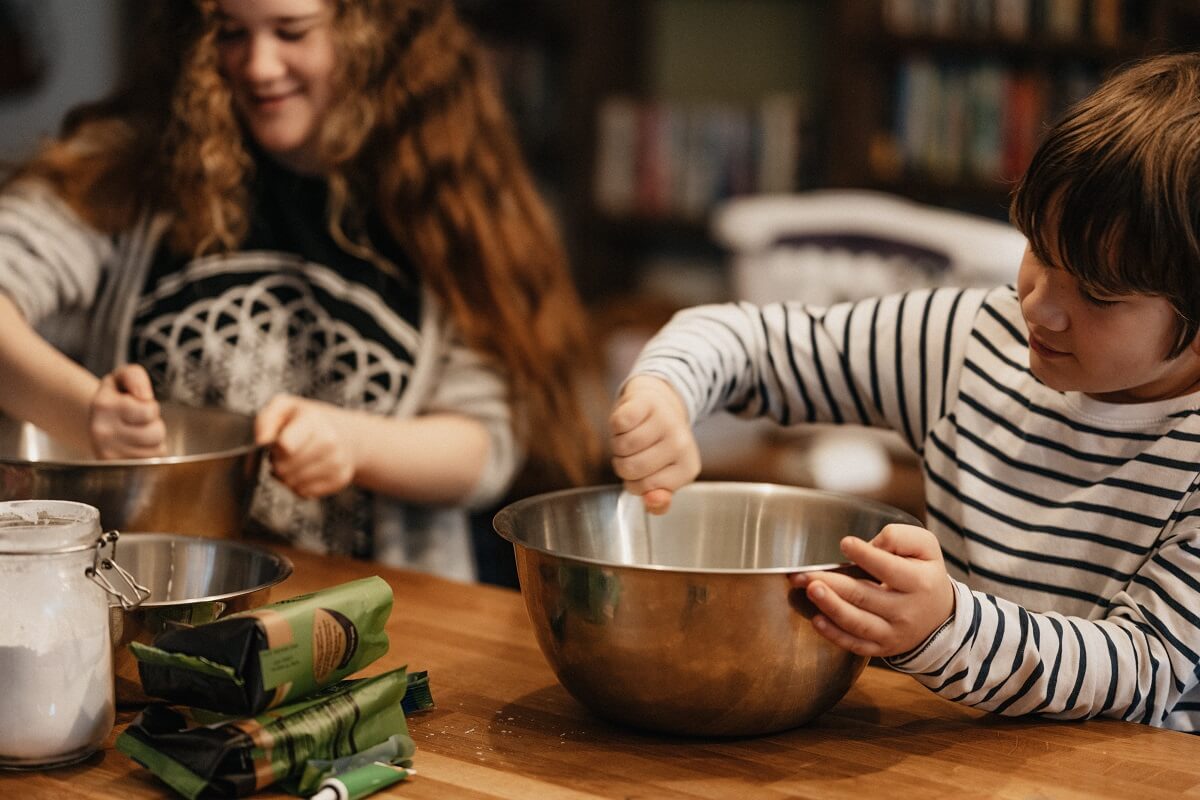
Delete Instagram from your phone so that you stop comparing your family’s celebrations with others, and try to enjoy the time with family, not merely what you can buy. If you can get the whole family on board, imagine what would happen if you skipped gift-giving for a year.
16. Go to the Library
You can rent movies, read magazines, borrow books, use the internet, and take classes for the low, low price of free.
17. Reusable Diapers
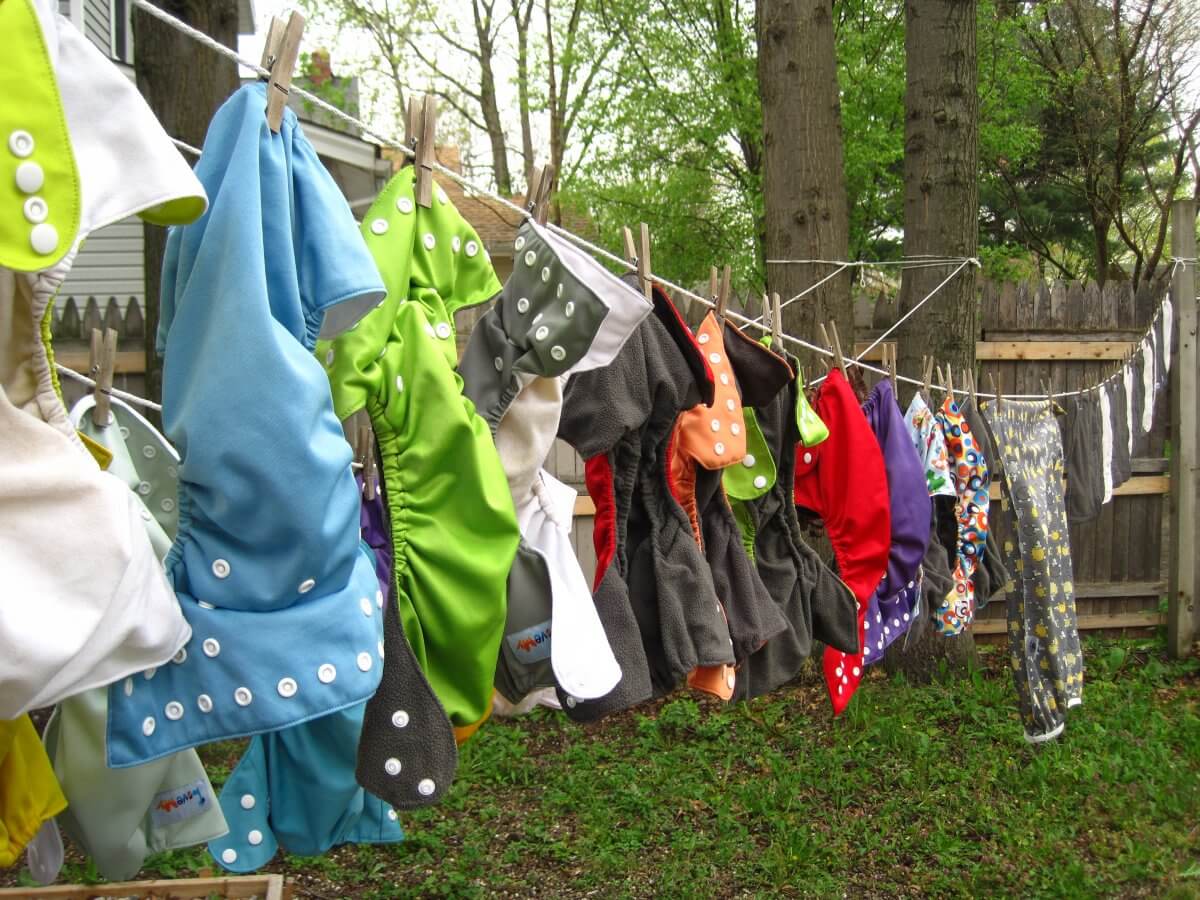
Though they may seem like a big initial investment since they’re more expensive than a pack of disposables, reusable diapers can last through multiple children. Using 10-ply prefold diapers inside a snap-close cover is a super-effective combination.
18. Learn How to Cut Your Own Hair
There are plenty of tutorials on YouTube to get a look that works well enough, even if it’s not as stylish as you’re used to. And if you have a family, the savings are exponential.
19. Pay for Everything in Cash
After you’ve cut up your credit cards, go old school and pay for everything with cash. This makes you physically see the money you’re spending, forces you to plan ahead, and curtails thoughtless spending. You can only spend as much as you bring into the store. As a bonus, you can make purchases without your personal data being tracked and sold to the highest bidder.
As you can see, making huge changes to get free of debt isn’t just a matter of dollars and cents. It can become a total lifestyle overhaul. It can force you to take a different sort of responsibility for your choices and actions, and in many ways, seek self-sufficiency for your time, your decision-making path, and how you use your money.

And it may well make you more like a homesteader than you realize. Though this journey may start out as a desperate attempt to free yourself from the burden of payments and loan cycles, it can “end” in a new beginning.
Because when all these choices and decisions result in the day when you’re no longer a slave to your former lenders, you might be a changed person with a different way of looking at the world and a different way of living. So much so, that you may consider my final suggestion seriously. And that is …
20. Sell Everything, Pay Off the Debt With the Funds, and Start Over as an Off-Grid Homesteader
Too extreme? I obviously don’t think so. Becoming a full-time homesteader is a HUGE lifestyle change, but it could be the refresh button you need to push. When you throw away the whole Keepin’-Up-With-The-Joneses Game (the Joneses are deeply trapped in debt, by the way), frugal opportunities begin to present themselves as a lifestyle, and a wonderful one at that.
Just be sure to save up and try to pay for your homestead in cash (it is possible). Once you’ve fought so hard for your freedom, you’ll not want to give it up easily again.




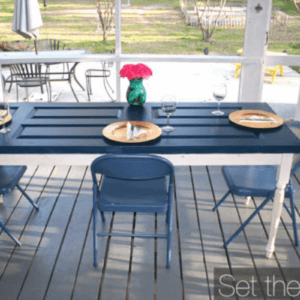





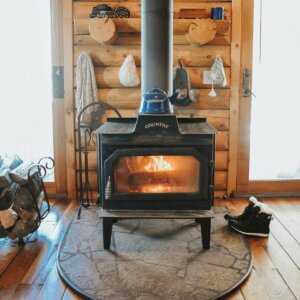






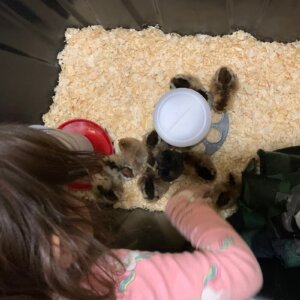


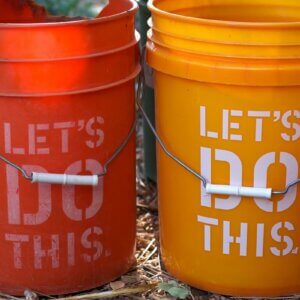






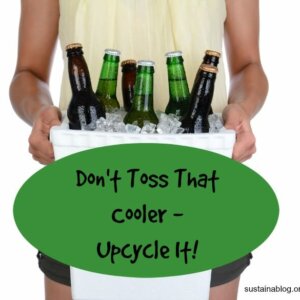


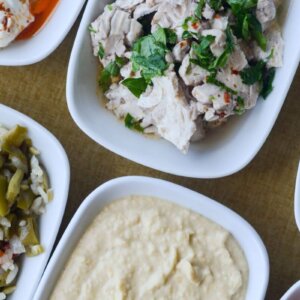











I really like these ideas. All of them, really, though we didn’t take quite as deep of a plunge as you last suggest when we paid off our debt. As one of the Joneses, I’d like to say that some of us are, officially, debt free, and pursuing some level of self-sustainability. 😉